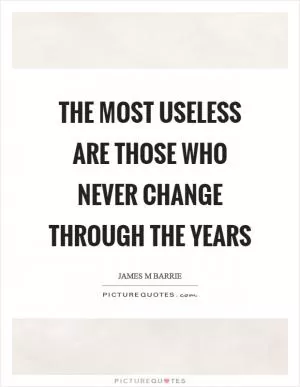I have always found that the man whose second thoughts are good is worth watching

I have always found that the man whose second thoughts are good is worth watching
James M. Barrie, the renowned Scottish author and playwright, is perhaps best known for creating the beloved character of Peter Pan. However, his literary contributions extend far beyond this iconic figure, as his works often delve into the complexities of human nature and the power of imagination. One of Barrie's most famous quotes, "I have always found that the man whose second thoughts are good is worth watching," encapsulates his belief in the importance of introspection and self-reflection.Barrie's own life was marked by moments of deep introspection, as he grappled with personal tragedies and the complexities of his own emotions. His ability to channel these experiences into his writing is evident in the depth and nuance of his characters, who often struggle with conflicting desires and motivations. In many of his works, including "Peter Pan" and "The Little Minister," Barrie explores the tension between duty and desire, reality and fantasy, and the search for meaning in a chaotic world.
The quote, "I have always found that the man whose second thoughts are good is worth watching," speaks to Barrie's belief in the power of self-examination and the potential for growth and transformation. In a world where impulsivity and instant gratification often reign supreme, Barrie's words serve as a reminder of the value of thoughtful consideration and reflection. By taking the time to pause and reconsider our actions and decisions, we can gain a deeper understanding of ourselves and the world around us.
Barrie's own creative process was marked by a similar sense of introspection, as he often drew inspiration from his own experiences and emotions. His ability to tap into the complexities of the human psyche is what makes his works so enduring and resonant with audiences around the world. Through his characters, Barrie invites us to explore the depths of our own hearts and minds, and to consider the consequences of our actions with care and thoughtfulness.












 Friendship Quotes
Friendship Quotes Love Quotes
Love Quotes Life Quotes
Life Quotes Funny Quotes
Funny Quotes Motivational Quotes
Motivational Quotes Inspirational Quotes
Inspirational Quotes